On Wednesday, the day after our 2017 presidential election, I dreaded having to put on my host face to go out to dinner with Dr. Joseph Graves, our ALLELE speaker for Thursday. I couldn’t really stand the thought of talking to anyone. His talk on “Biological determinism in the age of genomics” was supposed to have been anti-climactic after Hillary’s easy sweep. We see how well that went.
Joseph Graves is the first African-American to ever earn a Ph.D. in evolutionary biology and go on to become an evolutionary biologist. Before he came here this week though, I remember wondering if, in the age of Obama, it is important to have any one scientist speak about the race concept over another scientist simply because the one speaking is black (i.e., Jim Bindon, a white male anthropologist who has spent over 30 years teaching about the fallacy of the race concept, does a great job explaining it to me, another white guy; and I, in turn, am therefore fairly at explaining it to other middle class, privileged white people).
But then Tuesday the election happened, and on Wednesday, I picked up Joe Graves for dinner, and he told me how much of a battle his whole career has been merely because he is African-American. He said that, until grad school, he thought his middle name was “Nigger” because he was addressed as such so much. And he said that the results of the presidential election actually didn’t surprise him at all because he sees every day how much 8 years of Obama has made racist America angry.
This left me stupefied. I literally could not talk about any of this at dinner. Instead, I did my best to keep up by talking about the genetics of longevity and senescence and how one goes about studying these using bacteria and nanoparticles. In essence, the daily lived experience of Joe as an African-American scientist was too painful for me because it is now directly affecting me (though that is why I had invited him), so I stuck to talking to him about sports, music, and the minutiae of his day job.
But I was the host for this ALLELE lecture, which meant that I would be introducing Joe to an audience of 200-500 people. It would be a disservice to everyone if I just phoned this one in with my usual blah blah evolutionary studies, blah blah blah thanks to your generous donations, blah blah blah follow us on Twitter. So I wrote the following intro, which I have modified for this blog, because I hope it had more resonance, was worth saying to our audience, and thus is also worth sharing here.
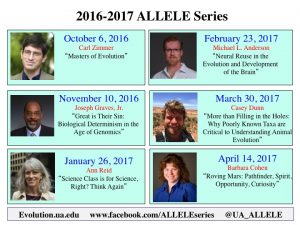
FIG 1. Alabama Lectures on Life’s Evolution series schedule at the University of Alabama.
“The ALLELE series is in it 11th year. The goal of the ALLELE series is to promote evolution research, education, and outreach in our community.

FIG. 2. To donate or get involved, please contact Kathy Yarbrough, me, or follow us via our website, Facebook page, or Twitter.
“On the one hand, I’m heartened that our mission is supported by an ever growing community, including several new sponsors that I’ve bolded in red in FIG. 2. But I’m going to save a little time that I’ll spend in another way—instead of telling you all about us, I’m directing you to our website, Facebook page, and Twitter account to learn more.
“On the other hand, we are not a political organization and I don’t purposely talk about politics. I am especially loathe to do so at the moment, but evolution is controversial. And in Alabama, evolution is associated with the “liberal agenda,” making it a political hot potato.
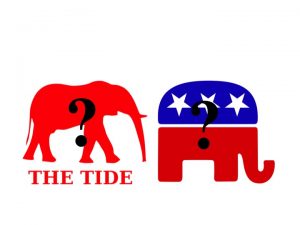
FIG. 3. The Crimson Tide elephant rolls over our rivals. What will the other elephant in the room do to us?
“So, instead of that usual introduction, I want to start by addressing the elephant in the room (FIG. 3). No, not the Crimson elephant that will roll over Mississippi State this weekend (Roll Tide?) but the one that permeates my consciousness today and likely many of yours.
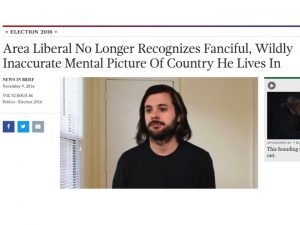
FIG. 4. From The Onion, November 9, 2016 (Vol. 52, Issue 44).
“This is me today (FIG. 4). This week, I find myself historically wrong for the first time in my life. I am devastated by our presidential election. At the cost of sounding melodramatic, it’s pretty close to the feeling that someone close to me who I didn’t expect to lose just died. And I had that experience a few years ago, so I know my reaction hasn’t been quite that extreme, but I think you get my meaning.
“This sense of devastation may surprise those who know me as the child of lower-middle class white liberals from rural Indiana. I grew up accustomed to being on the losing side through many presidential elections and keeping my mouth shut about things like the blatant racism of my classmates and neighbors. But then I fled to liberal New York, where I lived for nearly 20 years before moving to Alabama. But I moved to Alabama to take a decidedly upper-middle class job as a tenure-track professor and start, of all things, an evolutionary studies program.
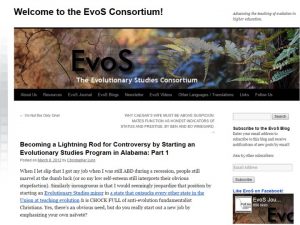
FIG. 5. My first blog post for the EvoS Consortium was about the non-event of starting an EvoS program in a conservative start that was obviously not threatened whatsoever.
“People back in New York and Indiana were shocked and awed at the audacity that I would start an evolution program in the Deep South. But, frankly, we encountered almost no impediments. The only rancor to starting our program came from within. There was some political resistance from the natural sciences that a social science department, Anthropology, would house the EvoS program. The only other flare-up worth note, incidentally, was over the topic of tonight’s lecture.
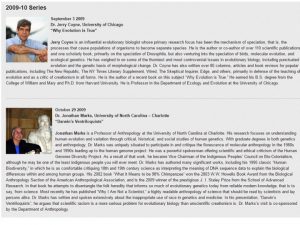
FIG. 6. Jerry Coyne and Jonathan Marks gave back to back ALLELE lectures my first semester at UA.
“My first semester here, we hosted back-to-back lectures by evolutionary biologist Jerry Coyne and evolutionary anthropologist Jonathan Marks. I liked the Coyne lecture. It was full of information and relatively uncontroversial for those of us who have drunk deeply of the evolution Kool-Aid.
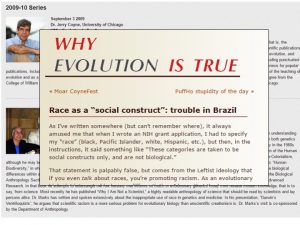
FIG. 7. Jerry Coyne is essentially a eugenicist, though a revised version.
“But in his blog (FIG. 7), Coyne comes across very differently. Coyne, Rissler, and others support a revised eugenics model which holds the biology of race as comparable to a subspecies.
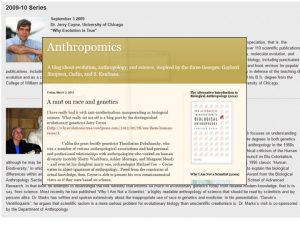
FIG. 8. Marks gets the genetics right, but he is equally aggressive in his tactics.
“Marks, on the other hand, I sadly missed because of a funeral. However, he got into an argument with the previous EVOWOG chair over eugenics. Marks decidedly does not support that there is any genetic basis to the race concept (FIG. 8) and—paraphrasing—said he would put his foot up the ass of anyone who does.
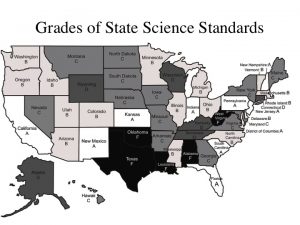
FIG. 10. In 2009, Mead and Mates published a study that scored Alabama as the worst state in the nation at teaching K-12 evolution.
“Outside of this kerfuffle, no one seemed to blink an eye that the flagship state research institution in the state with the anti-evolution disclaimer on texts and the worst K-12 record in the nation for teaching evolution had started a minor in evolutionary studies. This worried me and suggested that we are essentially a non-threat. The results of Tuesday’s presidential election support that, as do Dr. Graves’ comments to me last night at dinner that he is in the minority of people who are not at all surprised by the election results.

FIG. 11. Former EVOWOG chair Leslie Rissler and students surveyed 2999 UA undergrads and found that most had made up their minds about evolution by the time they got here.
“A few years ago, Rissler and colleagues conducted a study here at UA among a sample of nearly 3000 undergrads and found that attitudes about science and evolution are largely set by the time students arrive as freshmen. As you can imagine, this is pretty disconcerting. Two of my goals as an anthropology and an evolution professor are (1), as Jello Biafra so prosaically articulated, to “blow minds for a living” (FIG. 12) and (2) to blow the race concept out of the water. However, the students who enroll in the majority of my courses have largely already decided what they believe and can choose many of their courses accordingly, including whether to take even a single course in anthropology or evolutionary studies.

FIG. 12. I saw Jello Biafra speak at Indiana University when I was a college freshman, and he quite literally blew my mind.
“How do we “fix” a system from on high if the slim majority in the influential states (i.e., the big electoral college states) don’t believe it’s broken or don’t believe it’s broken in the same way?
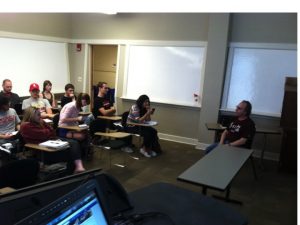
FIG. 13. Physicist Lawrence Krauss talking to my “Evolution for Everyone” students about how social problems resolve themselves when previous generations die off.
“A few years ago, physicist Lawrence Krauss sat in my class talking to students and answered this same question about fixing society and changing the world. He said, you teach young people and wait for them to grow up, vote, and change the world through a demographic shift (actually, he said, you wait for the previous generation to die).
“I thought that was happening. I still think it’s happening, though I am a privileged white liberal male with a myopic, rose-tinted view of the world. That is clear. But it’s still the only direction I can think of to move in.
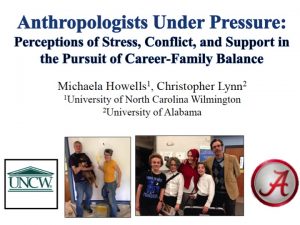
FIG. 14. We are studying the structure of our own discipline and—surprise surprise—we are an economically privileged lot.
“My colleague Michaela Howells and I have been studying our own discipline of anthropology and the dynamics of having a family or not while trying to be or to become a field anthropologist. Our preliminary assessment is that, if you’re born upper-middle class, regardless of race, you are more likely to be successful in your goal of going into anthropology and either postponing having kids or being able to find the resources to get them care while you work. Poor people simply have much less hope or opportunity to go to college, to get an advanced degree, and have a thriving family life.
“So how do we change that?
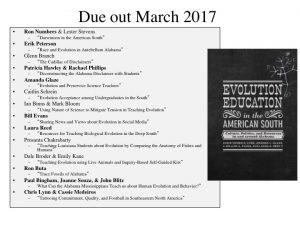
FIG. 15. Our book targets K-16 educators and students with cultural backstory, the demystification of rhetoric, and resources that can be used in the classroom.
“We change that for one by starting at the bottom and educating all kids to be more aware of the possibilities in life and consider their importance. We provide more resources for teachers to teach science correctly and without the inherent anti-scientific bias of disclaimer stickers. FIG. 15 is the table of contents to a book coming out next year based initially on this series that targets K-16 teachers and students. Authors in bold are those who have spoken at UA or are our students or faculty.
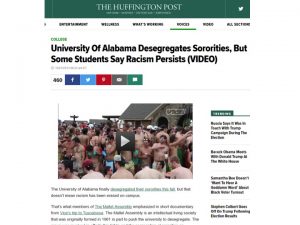
FIG. 16. Over the past few years, our students have made the national news 2-3 times for the racism of our sorority system. Our fraternity system is no better and is a hot mess of rape culture. And both were implicated in voter fraud that disenfranchised multiple respected school board members in favor of white males whose sole objective is to preserve the status quo.
“As happy and pleased with myself as I am to have invited Dr. Graves here to speak to you tonight, I think whatever we can do to support our K-12 teachers and kids are the most important things we can be doing to improve our world.
“Because this. What does it say to our kids here in Tuscaloosa that we make national news for our racist sorority system or the rape culture of our fraternity system, then go back to business as usual? How do these events seem to make so little impact?
“To improve our culture and our community, we need to start in elementary schools by creating role models and showing kids actual paths they can take to better lives.
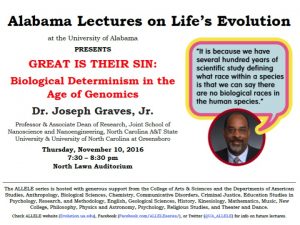
FIG. 18. Flyer for Graves’ talk.
“Dr. Graves is the kind of role model we need a lot more of. He is Associate Dean for Research and Professor of Biological Sciences at the Joint School of Nanosciences and Nanoengineering of North Carolina A&T State University and UNC Greensboro. To cherry pick liberally from his NIH biosketch, Dr. Graves is a pioneering African-American evolutionary biologist with over 25 years mentoring underrepresented minority students in biomedical related research at majority and minority-serving institutions.
“His research involves three areas: (1) the genetics/genomics of adaptation, especially with regard to aging in metazoans and anti-microbial resistance to metals in bacteria, (2) the biological impact of engineered nanomaterials in bacteria, and (3) evolutionary medicine, especially as relevant to health disparities and biological conceptions of race in humans. He has published over 80 papers and book chapters and appeared in seven documentary films and numerous television programs on these topics.
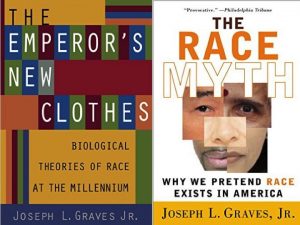
FIG. 19. Joseph Graves has written two books and numerous articles on the race concept.
“His books on the biology of race are entitled The Emperor’s New Clothes: Biological Theories of Race at the Millennium and The Race Myth: Why We Pretend Race Exists in America, both of which are on sale here tonight. A summary of Dr. Grave’s research career can be found on Wikipedia, and he is also featured in the ABC-CLIO volume on Outstanding African-American scientists. And the list very much goes on.
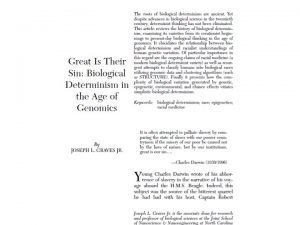
FIG. 20. Published in Annals of the American Academy of Political and Social Science (Vol. 661, No. 1).
“As I’m sure you’ve gathered, the title of tonight’s talk is “Great is Their Sin: Biological Determinism in the Age of Genomics,” which is based on this paper (FIG. 20) he published last year in Annals of the American Academy of Political and Social Science.
“And so, without any further ado, I present to you, Dr. Joseph L. Graves, Jr.”
